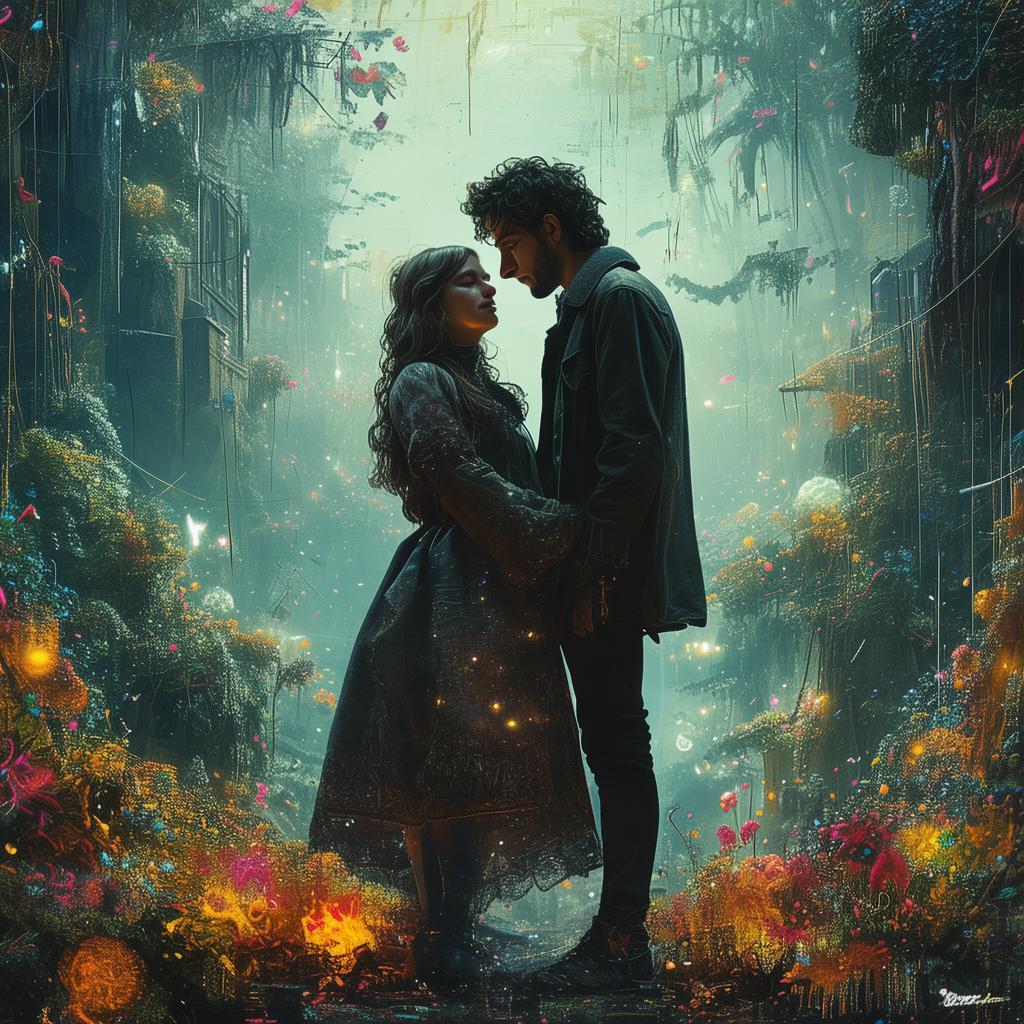The Lyrical Love of the Bard: A Tale of Passion and Betrayal
In the quaint town of Stratford-upon-Avon, amidst the whispering cobblestones and the sweet scent of blooming roses, there lived a man whose words would echo through the ages. His name was William Shakespeare, the Bard of Avon, and his heart was as complex as the plays he penned. The Lyrical Love of the Bard tells the story of Shakespeare's tumultuous love affair with a woman whose name was as enigmatic as her beauty—Eliza.
The story begins with a young Shakespeare, fresh from the University of Cambridge, returning to Stratford. His heart was filled with dreams of grandeur and love, but the world was not ready to embrace the young playwright. He found himself in a love triangle, with Eliza as the object of his affection, and her husband, John, as the man who held her hand and her heart.
Eliza was a woman of great beauty and intelligence, a rarity in those days. She was the daughter of a local merchant, and her father had arranged her marriage to John, a man of substance and position. Despite this, Eliza's heart belonged to Shakespeare. Her love for him was as fervent as his was for her, but it was a love that could never be. The Bard was a man of the world, a man of the stage, and Eliza was a woman bound by the constraints of her time.
As Shakespeare's plays began to gain popularity, he found himself entangled in the political machinations of the court. The Earl of Oxford, a patron of the arts, saw in Shakespeare a tool to advance his own interests. The Earl, a man of power and influence, was also a man who desired Eliza. He saw her as a prize, a possession, and he was willing to use Shakespeare to get her.
The Bard, caught in the crosshairs of these two powerful men, found himself in a dangerous game. He knew that to love Eliza openly would mean the end of his career and possibly his life. Yet, he could not bear the thought of losing her. In a moment of desperate passion, Shakespeare wrote a play that would change the course of his life and Eliza's forever.

The play, "Romeo and Juliet," was a tragedy of love and loss, a story that mirrored the Bard's own heartache. It was a love story that spoke of forbidden passion, of the pain of unrequited love, and of the ultimate sacrifice. As the play was performed, the audience was captivated by the raw emotion and the tragic ending. Little did they know that the story on the stage was a reflection of Shakespeare's own life.
The Earl, seeing the power of the play, decided to use it to his advantage. He offered Shakespeare a chance to rise to the heights of fame and fortune, but at a great cost. The Bard, torn between his love for Eliza and his ambition, agreed to the deal. In exchange for his loyalty, the Earl promised to keep Eliza safe and to give her the freedom to pursue her own happiness.
However, the Earl's promises were as hollow as the words of his courtiers. He used Shakespeare's success to further his own ambitions, and Eliza became a pawn in his game. She was kept under lock and key, her freedom a mere illusion. Shakespeare, torn between his love and his loyalty to the Earl, could do nothing but watch as his beloved suffered.
The play "Romeo and Juliet" became a sensation, and Shakespeare's name was known throughout the land. Yet, in the quiet of his own heart, he knew that he had sold his soul for a chance at greatness. The cost was too high, and the love he had lost was irrecoverable.
As the years passed, Shakespeare's plays continued to be performed, but his heart remained unfulfilled. He had achieved fame, but at the cost of his love. Eliza, trapped in her own world, never knew the extent of her husband's betrayal or the depth of Shakespeare's love for her.
In the end, Shakespeare's life was a tragedy of love and ambition. He had written about love and loss, but he had never truly experienced the joy of love. His greatest creation, "Romeo and Juliet," was a reflection of his own life, a story of unrequited love and the pain of a heart that was never truly free.
The Lyrical Love of the Bard is a tale of passion, betrayal, and the tragic end of a literary genius. It is a story that will resonate with readers, sparking discussions about love, ambition, and the choices we make in the name of our dreams.
✨ Original Statement ✨
All articles published on this website (including but not limited to text, images, videos, and other content) are original or authorized for reposting and are protected by relevant laws. Without the explicit written permission of this website, no individual or organization may copy, modify, repost, or use the content for commercial purposes.
If you need to quote or cooperate, please contact this site for authorization. We reserve the right to pursue legal responsibility for any unauthorized use.
Hereby declared.









